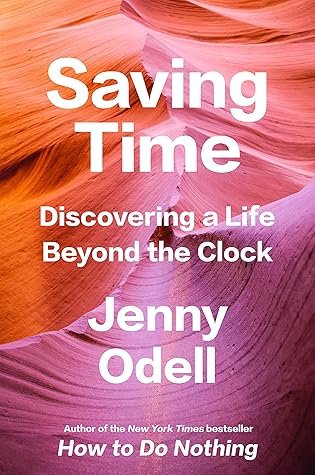More on this book
Community
Kindle Notes & Highlights
by
Jenny Odell
Read between
February 20 - May 14, 2024
Like an emissary from somewhere outside clock time, it has populated my mind with questions of porousness and response, of inside and outside, of potentiality and imminence.
What first appears to be a wish for more time may turn out to be just one part of a simple, yet vast, desire for autonomy, meaning, and purpose.
Tomorrow was growing raw out of the husk of today, and in it, I’d be different. All of us would.
While labor time is disembodied and uniform for the buyer, who can always buy more, this is not the case for the laboring person, who gets only one life and one body.
The future is always over the horizon, and to be alive is to be in transit. For a few minutes, a sunrise collects all that ineffable bittersweetness into a single burning point.
Of all the senses of time I will describe in this book, this is the one I most want to “save”: that restlessness and change that runs through all things, making them anew, rending the crust of the present like the molten edges of a lava flow.
Once again, you’re said to have the same number of minutes as everyone else. The only task that remains is running those minutes through your factory with greater and greater efficiency, as though you were using up especially clean-burning fuel.
In the meantime, it is worth decoding the advice to “live your best life” as what it sometimes is: an imperative to “live the best life,” in the sense of a high score. What about choosing to just “live a life”? Sometimes when I find myself grasping too much, I simply repeat to myself, almost in the tone of a parent toward a child, that everything can’t be everything.
I have no problem with the idea of an online social network; I just don’t want to buy a sense of community with my attention to ads, on a platform that implicitly encourages me to advertise myself, all while my data gets collected.
Whether on the level of minutes or of life stages and benchmarks, the more you stare at time, the more cruelly it seems to slip through your fingers.
To live in the gap between past and future is quite simply the human condition, even if culturally dominant and politically convenient views of time, history, and the future obscure it from us. Looking mournfully to the future in which something new can never happen, we can’t see ourselves standing in the gap, the only place where anything new is capable of happening.
That’s the irony of determinism: It involves something of a choice.


